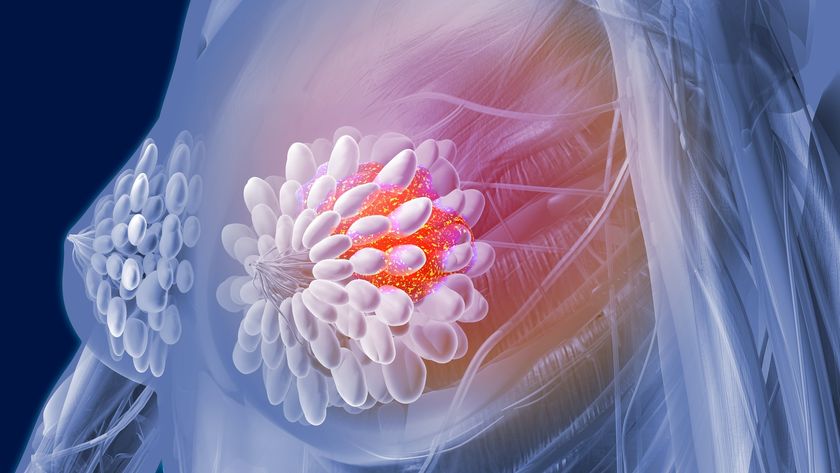Women Who Sit Too Much Have Higher Breast Cancer Risk

Too much time spent sitting at work and during off hours may increase women's risk of breast and endometrial cancer, a new study from Sweden suggests.
Researchers analyzed information from more than 29,000 Swedish women ages 25 to 64 who did not have cancer at the study's start. The women were followed for about 25 years.
Study subjects were divided into three groups: those who had a sedentary job (such as working in an office) and did not participant in recreational sports, those who had a sedentary job but did participate in sports (such as running and handball), and those who had a physically active jobs that required more standing up (such as being a teacher) and also participated in recreational sports.
Women who were not active at their work or in their leisure time were 2.4 times more likely to be diagnosed with endometrial cancer (a cancer of the uterus lining), and also 2.4 times more likely to be diagnosed with breast cancer before menopause, compared with those who were active at their jobs and in their leisure time. There was no link between inactivity and an increased risk of breast cancer after menopause. [5 Tips for Sitting Less During Your Work Day]
People who work in offices can do small things throughout the day to reduce their siting time, such as getting up for coffee or walking to work, said Anna Johnsson, one of the authors of the study and a physical therapist at Lund University in Sweden.
The findings agree with previous studies that have found a link between inactivity and cancer risk. A 2014 study found that every two-hour increase in the amount of time spent sitting per day was linked with a 10 percent increase in women's risk of endometrial cancer and an 8 percent increase in people's risk of colon cancer.
And a 2011 study estimated that being inactive was linked to as many as 49,000 cases of breast cancer each year in the United States. (There are about 230,000 cases of breast cancer diagnosed yearly in the United States, according to the National Cancer Institute.)Some studies have suggested that taking short breaks throughout the day to move around reduces levels of molecules in the blood that are linked with cancer risk.
Sign up for the Live Science daily newsletter now
Get the world’s most fascinating discoveries delivered straight to your inbox.
The new study was presented this week at the meeting of the American Association for Cancer Research in Philadelphia.
Follow Rachael Rettner @RachaelRettner. Follow Live Science @livescience, Facebook & Google+. Original article on Live Science.

Rachael is a Live Science contributor, and was a former channel editor and senior writer for Live Science between 2010 and 2022. She has a master's degree in journalism from New York University's Science, Health and Environmental Reporting Program. She also holds a B.S. in molecular biology and an M.S. in biology from the University of California, San Diego. Her work has appeared in Scienceline, The Washington Post and Scientific American.












